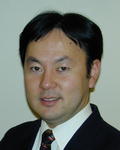Dr. Andrew E Budson MD
Neurologist | Neurology
221 Longwood Avenue Brigham Behavioral N Boston MA, 02115About
Dr. Andrew Budson is a distinguished Neurologist in Boston, MA. Dr. Budson specializes in diagnosing, treating, and managing disorders of the brain and nervous system. With expertise in handling complex conditions like epilepsy, multiple sclerosis, and migraines, Dr. Budson employs advanced techniques and personalized treatment plans to improve patient outcomes. As a neurologist, Dr. Budson is committed to staying abreast of the latest developments in neurological research and therapies.
Education and Training
Harvard Med Sch, Boston Ma 1993
Harvard Medical School 1993
Board Certification
Psychiatry and NeurologyAmerican Board of Psychiatry and NeurologyABPN
Provider Details
Expert Publications
Data provided by the National Library of Medicine- Perfusion- and diffusion-weighted magnetic resonance imaging in transient global amnesia.
- Health of organisms and health of persons: an embedded instrumentalist approach.
- Pathophysiology underlying diminished attention to novel events in patients with early AD.
- Frontal and parietal components of a cerebral network mediating voluntary attention to novel events.
- Late frontal brain potentials distinguish true and false recognition.
- Associative recognition in Alzheimer's disease: evidence for impaired recall-to-reject.
- An electrophysiological investigation of the relationship between conceptual fluency and familiarity.
- Failing to get the gist: reduced false recognition of semantic associates in semantic dementia.
- Education and communication about memory: using the terminology of cognitive neuroscience.
- Patients with mild Alzheimer's disease attribute conceptual fluency to prior experience.
- Comparing source-based and gist-based false recognition in aging and Alzheimer's disease.
- The P300 component in patients with Alzheimer's disease and their biological children.
- Mis-attribution errors in Alzheimer's disease: the illusory truth effect.
- ERP correlates of recognition memory: effects of retention interval and false alarms.
- Memory for choices in Alzheimer's disease.
Treatments
- Dementia
- Memory Loss
Dr. Andrew E Budson MD's Practice location
Practice At 221 Longwood Avenue Brigham Behavioral Neurology Group
221 Longwood Avenue Brigham Behavioral N -Boston, MA 02115Get Direction
Andrew Budson
357 Shields Dr The Memory Clinic -Bennington, VT 05201Get Direction
Dr. Andrew E Budson MD's reviews
Write ReviewPatient Experience with Dr. Budson
Recommended Articles
- What Is a Massive Stroke?
A massive stroke occurs when the blood flow to the brain is interrupted. This deprives the brain tissues of enough oxygen. This may have devastating consequences. Usually, a massive stroke is fatal, making the recovery long and delicate. However, if a quick response is made, the victim can...
- Literally Fighting Parkinson's: Fitness Program Focuses on Boxing to Alleviate Symptoms
“Exercise is good for the brain” is a statement largely supported by scientists, physicians, researchers and all kinds of experts in the field of neurology. Some of the benefits the brain can receive from regular exercise are:...
- Dealing with Anxiety and MS
In relation to MS, anxiety can present itself, owing to the fear of the effects of MS as it progresses, and the challenges, losses, or adjustments that may be necessary as a result of MS. This fear usually comes as a threat to your sense of normal self. A sense of self refers to how you feel about...
- Jerry Lewis Remembered for his Role in Muscular Dystrophy Fundraising
Comedian and entertainer, Jerry Lewis, died Sunday, August 20, 2017 at age 91. And one of the things he will be most remembered for is his work with the Muscular Dystrophy Association. While more than $2.5 billion were raised from 1966 to 2010 through the annual telethons that Lewis hosted, some of...
- Widow Creates Fashion Line to Help Parkinson's Disease Patients
Maura Horton’s husband, Don, was diagnosed with Parkinson’s Disease when he was just 48 years old. Don was part of the about 1.5 million people who had Parkinson’s disease just in the United States. This progressive disease disrupts the neural circuits that are in the basal ganglia, which is...
- How Does Saphris Work?
Mechanism of ActionSaphris is an atypical antipsychotic used for the treatment of schizophrenia and bipolar disorder in both adults and children ages 10 years old and above. The drug's exact mechanism of action is still unknown. However, it is believed that like other antipsychotics, it interferes...
Nearby Providers
- Dr. Masanori Takeoka MD333 Longwood Avenue Boston Massachusetts 02115
- Dr. Agnes Virga M. D.133 Old Rd To 9 Acre Cor Concord MA 01742
- Dr. Linda Buchwald MD300 MOUNT AUBURN ST CAMBRIDGE MA 02138
- Dr. Syed T. Ali MD65 Walnut Street Wellesley Massachusetts 2481
- Dr. Carmen Rosa Fortuno roman M.D.1 Boston Medical Ctr Pl Boston MA 02118
- Dr. Eduardo Garcia M.D.2000 Washington St Newton Lower Falls MA 02462
Nearest Hospitals
BRIGHAM AND WOMEN'S HOSPITALl
75 FRANCIS STREET BOSTON MA 2115BOSTON CHILDREN'S HOSPITALl
300 LONGWOOD AVENUE BOSTON MA 2115








